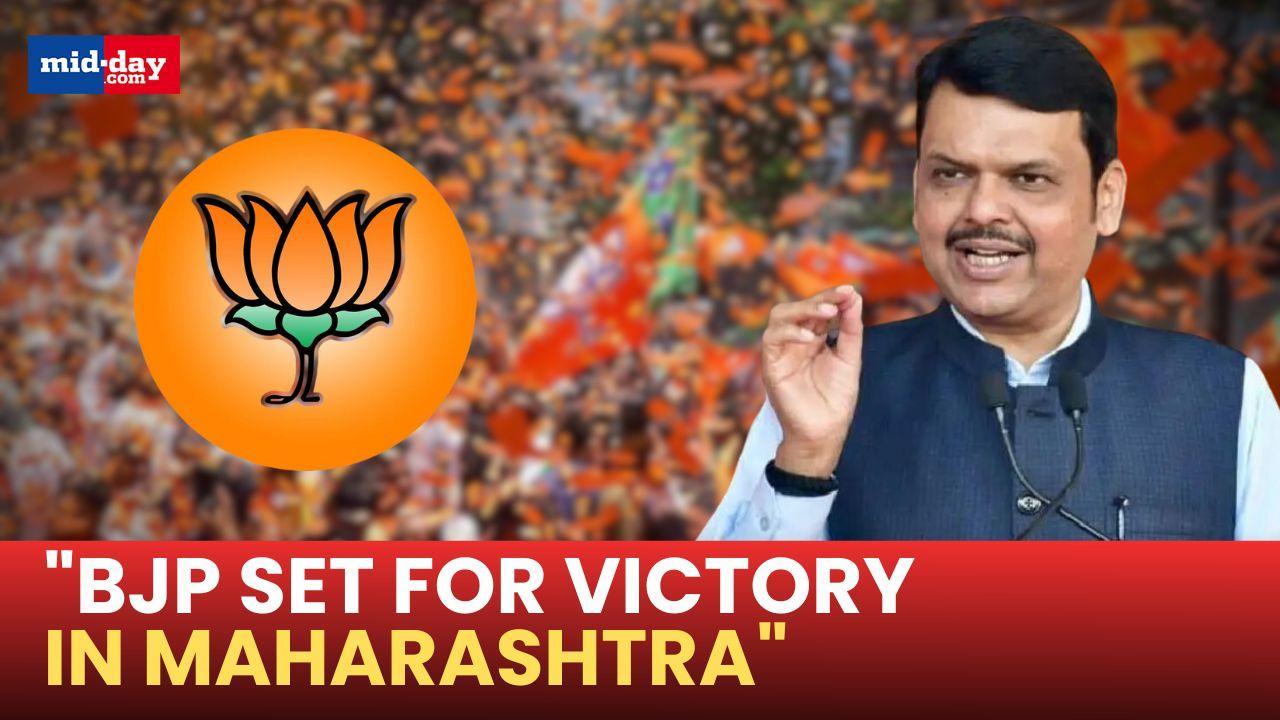From his early days as a corporator to emerging as a three-time chief minister, Devendra Fadnavis has redefined Maharashtra’s political landscape. As the BJP-led Mahayuti secures a landslide victory, Fadnavis cements his legacy as a resilient and astute leader

File Pic
From his humble beginnings as a corporator to becoming Maharashtra’s youngest mayor and later its first BJP chief minister, Devendra Fadnavis’ political ascent has been one of steady determination. As the BJP-led Mahayuti alliance inches closer to a sweeping victory in the 2024 Maharashtra Assembly elections, PTI reports that the 54-year-old leader is poised to take up the state’s top post for the third time.
ADVERTISEMENT
In a state traditionally dominated by Maratha leaders, Fadnavis stands out as a Brahmin leader with deep ties to the Rashtriya Swayamsevak Sangh (RSS). He is only the second Brahmin, after Shiv Sena’s Manohar Joshi, to have held the chief ministerial position in Maharashtra.
Fadnavis first gained prominence during the 2014 assembly elections, where he emerged as a clear frontrunner for the chief minister’s role, enjoying the confidence of both Prime Minister Narendra Modi and BJP stalwart Amit Shah. Modi himself praised him as "Nagpur's gift to the country" during the campaign.
Son of the late Gangadhar Fadnavis, a Jan Sangh leader and political mentor to Nitin Gadkari, Fadnavis entered politics through the Akhil Bhartiya Vidyarthi Parishad (ABVP), the RSS’s student wing, in 1989. By 22, he became a corporator in Nagpur and, at 27, the city’s youngest mayor. His political journey saw him winning his first assembly election in 1999 and retaining his Nagpur South West seat in subsequent elections.
Fadnavis’ clean image and sharp political acumen set him apart. During his first term as chief minister (2014–2019), he was credited with effective governance and expedited infrastructure projects, particularly in urban areas. However, his tenure also faced significant challenges, including the Maratha community’s agitation for reservations and farmer protests over loan waivers.
The 2019 elections marked a turning point. After Shiv Sena leader Uddhav Thackeray broke ties with the BJP over the chief ministerial post, Fadnavis’ slogan "Mee punha yein" (I will come back) faced its biggest test. Although he formed a short-lived government with NCP leader Ajit Pawar, it collapsed within 72 hours. Subsequently, Uddhav Thackeray became chief minister, supported by the NCP and Congress.
Fadnavis returned to prominence in 2022 when Eknath Shinde led a rebellion within the Shiv Sena, leading to Thackeray’s resignation. While many expected Fadnavis to reclaim the chief ministership, the BJP high command instead appointed Shinde to the role, with Fadnavis as his deputy. PTI reports that his acceptance of the role highlighted his loyalty to the party and its leadership.
Despite setbacks, Fadnavis demonstrated resilience, notably playing a key role in the BJP-Shinde faction’s seat-sharing strategy after the party’s poor showing in the 2024 Lok Sabha elections. PTI reports that the assembly election results now signal a resounding endorsement of his leadership and political strategy.
As Maharashtra braces for another term under BJP leadership, Fadnavis’ journey underscores his adaptability and ability to navigate the state’s complex political landscape. His third tenure, if confirmed, will be watched closely for his ability to deliver on governance and manage Maharashtra’s evolving challenges.
(With inputs from PTI)
 Subscribe today by clicking the link and stay updated with the latest news!" Click here!
Subscribe today by clicking the link and stay updated with the latest news!" Click here!







